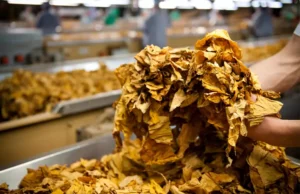The Brazilian tobacco industry faced a significant downturn last year, producing 83,000 tons less than the previous period, a substantial 13.7% decline.
This reduction led to a noticeable decrease in seasonal employment, with 1,000 fewer positions available, an 8.3% drop from the year before.
The Santa Cruz do Sul Workers Union (NOVO STIFA) detailed that currently, the sector supports 11,000 jobs.
This change is primarily attributed to adverse weather events, including severe floods and storms in Brazil’s South Region, severely impacting the tobacco crop.

However, the outlook from NOVO STIFA remains optimistic. Despite downturn, tobacco industry resilient, maintaining 11,000 jobs, showcasing market‘s dynamism and robustness.
An unexpected benefit emerged from the situation: the potential for longer employment contracts for seasonal workers.
As we look to the future, Brazil‘s standing as the leading tobacco exporter globally presents a promising outlook for the 2025 harvest season.
The shortfall experienced last year has led to increased demand for the upcoming season.
Despite ongoing issues such as smuggling and global challenges, the steadfast demand for tobacco suggests a potential rebound in production.
This anticipated increase in demand underscores a resilient and hopeful future for Brazil’s tobacco industry and its workforce.

